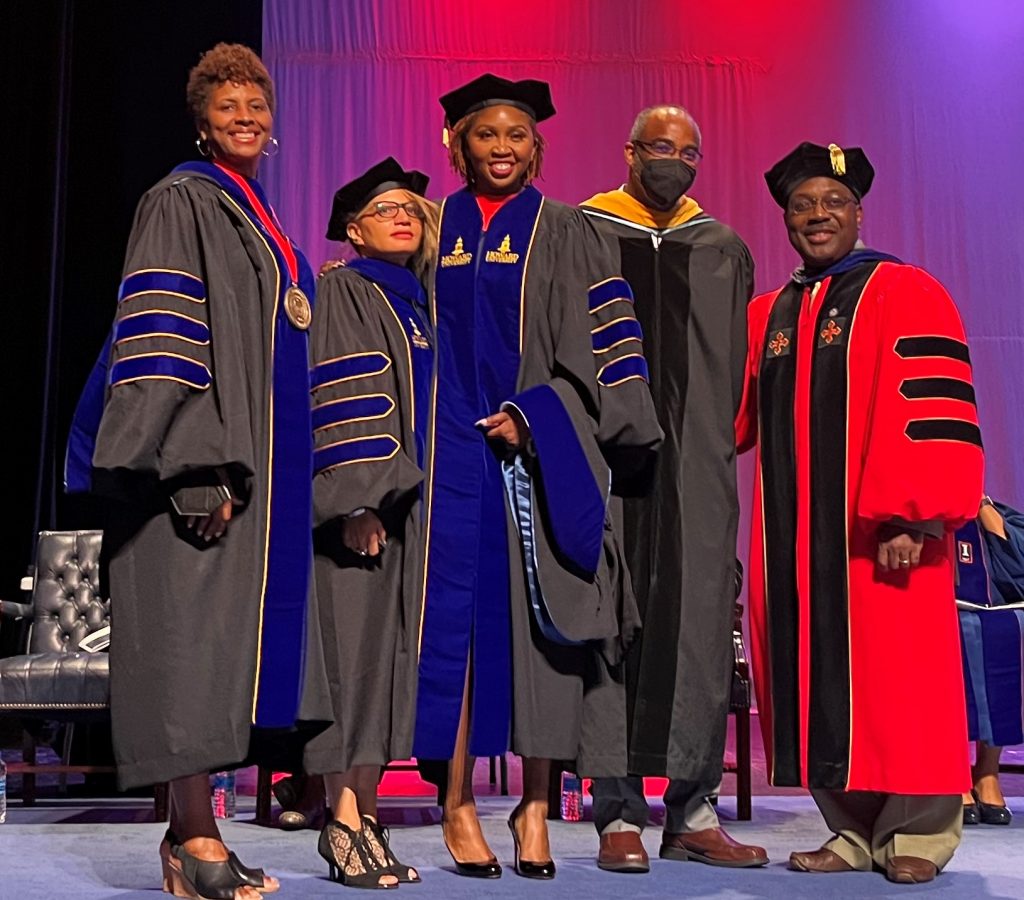Introduction
The NOAA Cooperative Science Center for Atmospheric Sciences and Meteorology at Howard University is an institutional award in the second five-year cycle (NCAS-M II) that integrates research and training missions of the Cooperative Science Center (CSC) to provide opportunities for undergraduate and graduate students to be trained in and apply the NOAA mission aligned competencies.
In alignment with the administration’s vision to restore American Leadership in Science and Technology, and the White House Initiative to Promote Excellence and Innovation at Historically Black Colleges and Universities (Executive Orders) the NCAS-M II supports the nation’s competitiveness in science, technology, engineering, and mathematics (STEM). In alignment with the mission of the Department of Commerce, NCAS-M II creates conditions to advance innovative science, economic growth, and opportunity for all communities.
The Center’s research and training focus is on:
-
weather, meteorological, and extreme events applications,
-
social, behavioral, communication and economic disciplines in support of NOAA’s mission
The Center ensures that, in addition to their disciplinary specialties, all students are literate in both the atmospheric sciences and how these apply to society. Thus, NCAS-M II research and training activities support its primary goal of producing a diverse and highly trained cadre of technical and environmentally literate professionals who will help build a more resilient nation in the face of increasing vulnerability to weather extremes and other environmental threats.
NCAS-M II plays a critical role in:
-
helping NOAA advance its mission science,
-
maintain its international leadership in weather prediction and mitigation.
NCAS-M II achieves goals through collaborative research training in support of NOAA mission by providing weather and extreme events forecasts and warnings for the protection of life and property and enhancement of the national economy.
NCAS-M trains students and postdoctoral fellows, creating a deep pool of talent for the future NOAA mission enterprise workforce who are effective problem-solvers and collaborators to deliver relevant weather- and water-related services, and communicate societal impacts to decision-makers, while participating directly in decision-making. As examples, training in FY24 included: AI Weather Prediction Models Developed in the Private Sector and Explored at NOAA; and Statistical Methods used in Social Sciences. All NCAS-M II training is virtual to accommodate students at all nine academic institutions across the Center.
Performance in the award during the fourth year will focus on enhancing American Leadership and Competitiveness and comprise NCAS-M II engaging in education, training and research using AI, machine learning, and supercomputing around:
-
Supporting the education and training of students continuing in the pipeline and recruit new students to enhance American Leadership and Competitiveness.
-
Process-level understanding and enhanced data assimilation/analysis and modeling capacities.
-
Improved quantification of forecast skills for weather, water, air-pollution, and extreme events.
-
Advancing the development of high-resolution models to enhance impact-based decision support.
-
Integrated social and physical sciences for public safety and emergency management applications.
-
Effective communication of risks for early warning and preparedness for extreme weather events to save lives and economies.
In the cooperative agreement, the NOAA scientists, managers and experts partner with the NCAS-M II in collaborative research projects, and students receive mentoring in technical skills as well as participate in hands-on training in the NOAA environment with NOAA mentors. This partnership increases opportunities to jointly support the development of research programs that serve as a platform for the recruitment and training of U.S. citizen students that directly lead to advances in atmospheric sciences and meteorology.
The EPP/MSI is a Federal STEM education and NOAA mission future workforce program with focus on:
Supporting the training and graduation of students and increasing participation of students from traditionally underrepresented minority communities;
Developing eligible candidates in support of a diverse future workforce for NOAA and NOAA mission-related enterprises; and,
Post-secondary education and research capacity development in atmospheric, fisheries, and environmental sciences and remote sensing technology at MSIs supported through competitive awards.
NCAS-M II, is the CSC aligned primarily with the NWS.
Core Competencies
NCAS-M II has six core competencies. Each competency has associated metrics, activities, and assessments.
Center-Wide Training
NCAS-M II will conduct center-wide professional skills development workshops (virtual and face-to-face) during the academic year and summer that will focus on career/professional skill development.
Postdoctoral Development Program
The goal of the NCAS-M II Postdoctoral Program (PDP) is to support advanced training of postdoctoral fellows in NOAA-related sciences with the goal to conduct research that directly supports NOAA’s mission, strategic plan, objectives, and outcomes.
NOAA Experiential Research and Training Opportunity (NERTO)
The NOAA Experiential Research and Training Opportunity (NERTO) is a NCAS-M II graduate student requirement. This unique NOAA mission experience integrates academics with practical NOAA mission-relevant experiential training.

Individual Student Development Plan (SDP)
All NCAS-M II fellows are required to complete an Individualized Student Development Plan (SDP).
Student Preparation for Success in Career Paths
NOAA Experiential Research and Training Opportunity (NERTO) »

